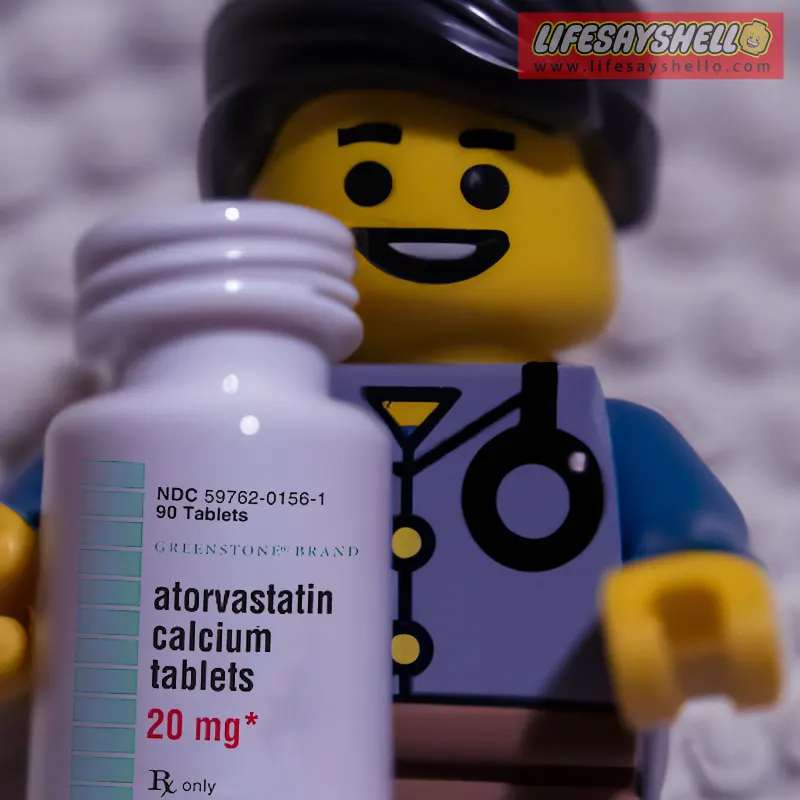A Comprehensive Guide to Atorvastatin 20 mg Side Effects: What Every Patient Should Know

Are you taking atorvastatin 20 mg to manage your cholesterol levels? It's essential to be well-informed about the possible side effects of this medication. In this comprehensive guide, we'll explore the common and serious side effects of atorvastatin 20 mg, as well as provide tips on managing and reducing these side effects for a better treatment experience.
Introduction
Atorvastatin, commonly known as Lipitor, is a widely prescribed medication used to lower cholesterol levels and reduce the risk of heart disease. While it has proven to be effective in managing cholesterol, it's crucial for patients to be aware of the possible side effects that may arise from taking this medication. In this article, we'll delve into the common and serious side effects of atorvastatin 20 mg, and provide helpful advice on how to manage and reduce these side effects to ensure a smooth and successful treatment journey.
Common Side Effects of Atorvastatin 20 mg
As with any medication, atorvastatin may cause some side effects. However, it's worth noting that not everyone will experience these side effects, and they may vary in intensity. Below, we've listed some of the most common side effects associated with atorvastatin 20 mg:
Headache: A mild to moderate headache is a common side effect of atorvastatin. This can usually be managed with over-the-counter pain relievers, such as acetaminophen or ibuprofen, and by staying well-hydrated.
Muscle pain: Some people may experience muscle pain, also known as myalgia, while taking atorvastatin. This can range from mild discomfort to more severe pain. It's important to inform your doctor if you experience persistent or worsening muscle pain.
Diarrhea: Atorvastatin may cause gastrointestinal issues, such as diarrhea. To manage this side effect, consider staying hydrated, eating small and frequent meals, and avoiding foods that may exacerbate diarrhea, such as fatty or spicy foods.
Nausea: Feeling nauseous is another common side effect of atorvastatin. To help alleviate nausea, try eating smaller meals more frequently throughout the day, and avoid lying down immediately after eating.
Fatigue: Some patients may experience fatigue or tiredness while taking atorvastatin. Ensure you get enough rest, maintain a balanced diet, and engage in regular physical activity to help combat fatigue.
Serious Side Effects and When to Seek Medical Help
While most side effects of atorvastatin 20 mg are mild and manageable, some can be more serious and require immediate medical attention. Here are some serious side effects to be aware of:
Severe muscle pain or weakness: In rare cases, atorvastatin can cause a serious muscle condition called rhabdomyolysis. Symptoms include severe muscle pain, weakness, and dark-colored urine. If you experience these symptoms, contact your doctor immediately or seek emergency medical help.
Jaundice (yellowing of the skin or eyes): Atorvastatin may cause liver problems, which can lead to jaundice. If you notice yellowing of your skin or eyes, contact your doctor as soon as possible.
Dark urine: Dark-colored urine can be a sign of liver problems or rhabdomyolysis. If you notice a change in the color of your urine, consult your doctor promptly.
Allergic reactions: Although rare, some people may experience an allergic reaction to atorvastatin. Symptoms include rash, swelling (especially of the face, lips, or throat), and difficulty breathing. If you experience any of these symptoms, seek emergency medical help immediately.
If you experience any of the serious side effects mentioned above, it's crucial to consult your doctor or seek emergency medical help as soon as possible. Early intervention can help prevent complications and ensure a safer treatment experience.
Managing and Reducing Side Effects
While side effects may be a part of the treatment journey, there are steps you can take to manage and reduce them. Here are some tips for dealing with common atorvastatin side effects:
Stay hydrated: Drinking plenty of water can help alleviate headaches and diarrhea associated with atorvastatin.
Maintain a balanced diet: Eating a healthy and balanced diet can help combat fatigue, improve overall health, and support your body as it adjusts to the medication.
Exercise regularly: Engaging in regular physical activity can help reduce fatigue and promote overall well-being. However, consult your doctor before starting a new exercise routine, especially if you're experiencing muscle pain.
Communicate with your doctor: Keeping your doctor informed about any side effects you're experiencing is crucial. They can help determine if any adjustments to your medication or dosage are necessary and provide additional guidance on managing side effects.
Conclusion
Being aware of the potential side effects of atorvastatin 20 mg is an important aspect of managing your cholesterol levels and overall health. By understanding the common and serious side effects, as well as implementing strategies to manage and reduce them, you can have a smoother and more successful treatment experience. Always consult your healthcare professional if you have any concerns or questions about your medication and its side effects. Together, you can work towards a healthier and happier future.




Comments